The answer is different for each dog but in general cold weather should bring about extra caution in all dog owners. Here are some general guidelines to consider if you live in snowy & icy climates:
Jagged ice, frozen plant stems, and sidewalk salt are sharp and can cut your dog's footpads. Snow can also collect on the hair between the pads, sometimes forming icy balls that cause pain and injury. Trimming the long hair from the bottoms of the feet may help prevent this. Always check your dog's feet after he's been out in snow. Thoroughly wipe off your dog's legs and stomach when he comes in from out of the sleet, snow or ice.
He can ingest salt, antifreeze or other potentially dangerous chemicals while licking his paws. Avoid letting your dog off the leash on snow or ice, especially during a snowstorm, dogs can lose their scent and easily become lost. More dogs are lost during the winter than during any other season, so make sure yours always wears ID tags. Even in more moderate climate zones, keep the following in mind: Be particularly gentle with elderly and arthritic pets as cold weather can leave their joints extremely stiff and tender.
Stay directly below these pets when they are climbing stairs or jumping onto furniture and consider modifying their environment to make it easier for them to get around. Never leave your dog alone in a car during the winter. It can act as a refrigerator, holding in the cold and causing the animal to freeze to death. Keep in mind that a regular outside dog in cold weather will need a quarter to a third more food than he needs in warm weather in order to generate enough body heat.
Adjust their meals accordingly. Go ahead and put that sweater on Princess, if she'll put up with it. It will help a little, but where pets lose most of their body heat is from the pads of their feet, their ears, and their respiratory tract.
Kallee and Tamara

A Beautiful Summer Day.
Madam Kallee, CTD, CGC - 1994-2005 - Certified Therapy Dog and a Canine Good Citizen

I am so pretty!
Kallee, T.D.I., CGC - Certified Therapy Dog and a Canine Good Citizen - 1994-2005

I loved to pose for the camera.
Hat Girl.

The things I do for my mom!
Happiness.

Bubby knows how to scratch a tummy.
Best of Friends.

Mine! No, Mine!, No Mine!!!
Whew !

Bubby wears me out!
This is the Life.

Just relaxing with bubby.
Kallee and Mr. Monkey

See Mr. Monkey? Wanna play?
Miss Cool.

I loved to wear my shades.
Subscribe to:
Post Comments (Atom)


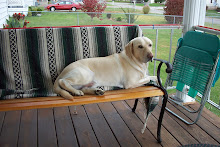
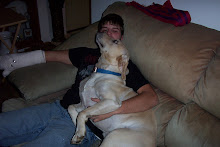

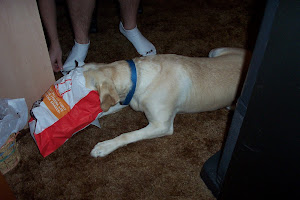


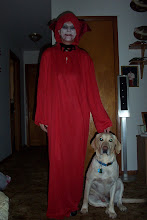

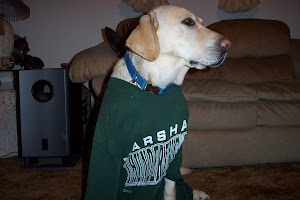
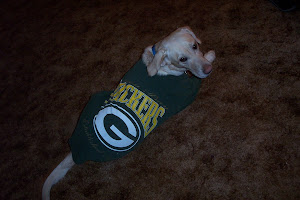



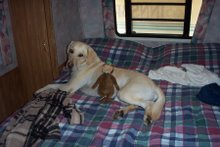




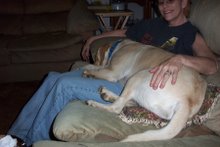


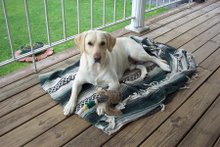


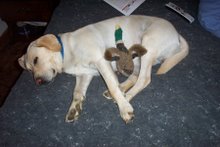

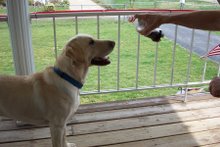




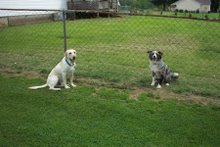
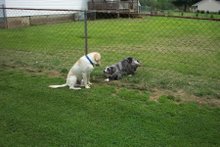
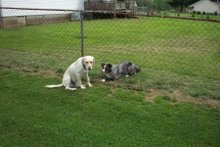
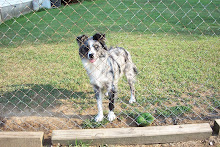


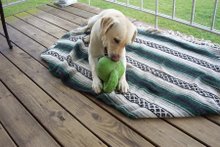
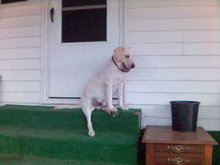







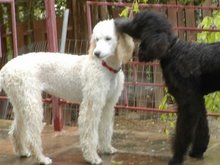
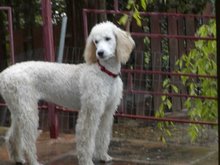

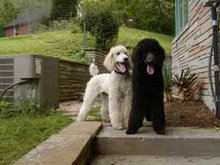
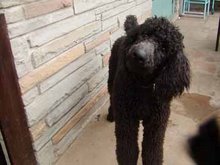

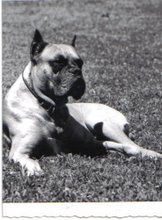

No comments:
Post a Comment